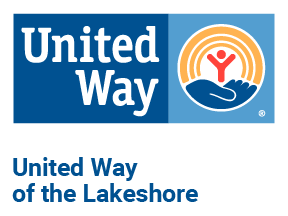
Governor Whitmer Signs Executive Order Expanding Capacity for Disaster Relief Child Care Services for Essential Workforce
LANSING, Mich. -- Today, Governor Gretchen Whitmer signed Executive Order 2020-16 to expand the capacity for child care services for health care workers, first responders, and other members of the essential workforce providing critical infrastructure to Michiganders during the coronavirus (COVID-19) crisis. The order provides temporary and limited relief from certain regulatory restrictions regarding child care services and facilitates the use of certain property for child care services.
Executive Order 2020-16, effective immediately, authorizes the Department of Licensing and Regulatory Affairs (LARA) to issue expedited provisional licenses to expand capacity for child care services. It also allows employers, like hospitals, to operate a disaster relief child care center for their employees. Finally, it allows both public and nonpublic school facilities to be utilized for the purposes of maintaining a disaster relief child care center focused on providing services for members of the essential workforce.
“Our health care workers and everyone who’s providing emergency medical services are doing incredible work to help us fight COVID-19,” said Governor Whitmer. “That’s why I’m taking action to expand capacity for child care services for these critical frontline workers. By expanding our ability to care for our children, we are allowing them to continue working and protect public health and safety. Child care services are essential to our collective effort, particularly while schools are closed. To all child care providers who are able and willing to remain open in Michigan, I thank you for your service and sacrifice during this time.”
The Governor has asked intermediate school districts to help mobilize and coordinate these efforts in partnership with local education agencies, employers, early childhood educators, private or community-based child care centers, and licensed in-home providers. Governor Whitmer has also asked all relevant state agencies to collaborate and align resources to support disaster relief child care centers, including financial, operational, and other technical assistance resources.
To ensure essential child care services are safe, all disaster relief child care centers authorized under the order must perform a health evaluation of all individuals who enter the facility each time they enter, and they must deny entry to those individuals who do not meet the evaluation criteria.
Additionally, all child care providers must continue following the Michigan Department of Health and Human Services (DHHS) and the Centers for Disease Control and Prevention guidelines to prevent the spread of the virus. Disaster relief child care centers that begin to operate must comply with certain LARA-imposed requirements that insure the safety and well being of children. At a minimum the requirements must include:
- Follow the safe sleep guidelines, including appropriate sleeping equipment for children under 12 months of age;
- Follow LARA’s guidelines for diapering, handwashing, and sanitizing;
- Provide porta-cribs, cots, or mats for children older than twelve months to sleep or rest; and
- Have awareness of, and communicate with parents and guardians regarding, a child’s: medicine; allergies, including food allergies; and other special needs.
Those included in the essential workforce providing critical infrastructure to Michiganders includes health care workers, home health workers, direct care workers, emergency medical service providers, first responders, law enforcement personnel, sanitation workers, child care workers, personnel providing correctional services, postal workers, public health employees, key government employees, court personnel, and others providing critical infrastructure to Michiganders.
In addition to the new provisions named in the executive order, LARA has also announced the following administrative guidance:
- LARA encourages trusted neighbors to help each other in providing care for children. The Child Care Organizations Act allows for people to provide unlicensed care for six or fewer children for a period of up to four consecutive weeks in a calendar year.
- LARA will allow currently licensed centers to extend their operations to additional buildings after LARA has inspected and approved the new locations to assure the safety of the children in care.
- LARA will expedite the licensing process for current and new applicants for provisional licenses, including faith-based and other community organizations. LARA will apply flexibility and follow reasonability given the COVID-19 emergency situation.
This is a rapidly developing situation and LARA, the Michigan Department of Education, and MDHHS will continue to provide additional guidance as new information and supports are available.
All child care providers should continue to practice mitigation strategies, such as washing your hands, cleaning and disinfecting surfaces thoroughly, and social distancing to help slow the spread of COVID-19.
Intermediate school districts, the Early Childhood Investment Corporation, and Michigan 2-1-1 are working together to mobilize and coordinate these efforts. If you are a member of the essential workforce, go to www.helpmegrow-mi.org/essential and your information will be routed to someone in your community who can help you find care.
For licensed child care providers are who willing to remain open or re-open during this emergency, please complete a short survey to provide information about your program's ability to serve the children of the essential workforce: https://www.surveymonkey.com/r/childcare-covid-response
Everyone is encouraged to continue the steps below to best prevent the spread of COVID-19:
- If you think you have been exposed to COVID-19, call your health care provider. If you do not have a health care provider, call the nearest hospital.
- Wash your hands often with soap and warm water for 20 seconds. If not available, use hand sanitizer.
- Avoid touching your eyes, nose, or mouth with unwashed hands.
- Cover your mouth and nose with a tissue or upper sleeve when coughing or sneezing.
- Avoid contact with people who are sick.
- If you are sick, stay home, and avoid contact with others.
- Stay at least 6 feet away from others when in a public setting.
Patients with confirmed infection have reportedly had mild to severe respiratory illness with symptoms of:
- Fever
- Cough
- Shortness of breath
Information around this outbreak is changing rapidly. The latest information is available at CDC.gov/Coronavirus.

